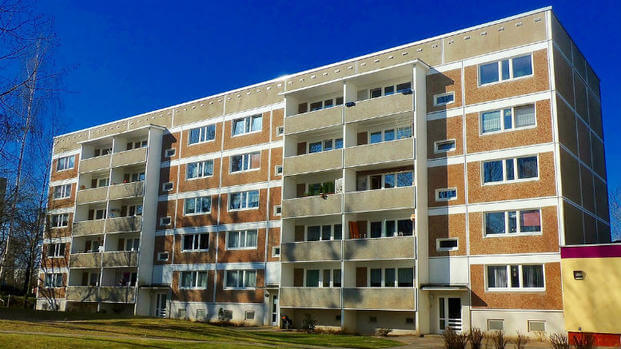If you want to find a topic that is misunderstood, look no further than breaking leases using protections of the Servicemembers' Civil Relief Act (SCRA.) In just the last two days, I have heard at least four serious misunderstandings about how you can and can not break a lease using the protections of the SCRA. So let's clear this up!
Disclaimer: I am not a lawyer.
The SCRA is a great federal law that provides a wide variety of protections to military members. Its general purpose is to ensure that military service members are not significantly disadvantaged in legal matters as the result of their military service.
The SCRA has a section that applies to how active duty military members may legally terminate residential leases, under certain circumstances. It is very specific and limited. In section 535 (b) (1) (B), it states:
"the servicemember, while in military service, executes the lease and thereafter receives military orders for a permanent change of station or to deploy with a military unit or as an individual in support of a military operation for a period of not less than 90 days."
Broken down, this specifies only two specific situations: permanent change of station moves, and deployments that exceed 90 days. This law does not protect against any other situations, despite what your friend, neighbor, or Facebook group might tell you.
A lot of the confusion comes in because individuals often cite the SCRA when attempting to terminate a lease, even when their situation doesn't fall under the law. Landlords sometimes let them terminate the lease, either out of confusion, kindness, or any number of other reasons. When this happens, it gives the impression that the landlord permitted the termination of the lease because the situation was covered under SCRA, even though that is not accurate. A friend tells a friend who tells another friend, and soon there is mis-information everywhere.
Situations that are specifically NOT covered under the SCRA include:
- Any lease that is not signed by, or on behalf of, the service member. It's OK if someone else has signed the lease on behalf of the spouse using a valid Power of Attorney. The service member must be a listed lessee. Spouses are not protected under the SCRA. This is why it is very important that spouses include their service member on all leases. If a military spouse rents an apartment and does not put his or her active duty husband or wife on the lease, then the lease can not be broken using SCRA protections.
- Orders to move on base. There are a wide variety of reasons why service members may be ordered to move on base. The SCRA does not give the service member the right to break their civilian lease due to orders to move on base. However, many states do have laws that include this protection, and some military clauses in leases include this provision.
- Being offered base housing. Similar to having orders to move on base, being offered base housing is not a protected situation under the federal SCRA. State laws may include this protection, as may some military clauses in leases.
- Training, time in the field, or any other short-term situation. While deployment is a covered situation, and it is not well-defined, the law does include the language "in support of a military operation." This is vague, but still important. Additionally, the law does specify that the deployment must exceed 90 days. Going to the field, work-ups, and other shorter activities do not qualify.
The SCRA provides valuable protections to military families when they have to move mid-lease. However, it is very specific and doesn't cover all the situations you've probably heard that it allegedly covers. Understanding the SCRA and using it properly is important both for the protection of the service members but also to ensure that landlords don't get so frustrated that they stop renting to military members altogether.









